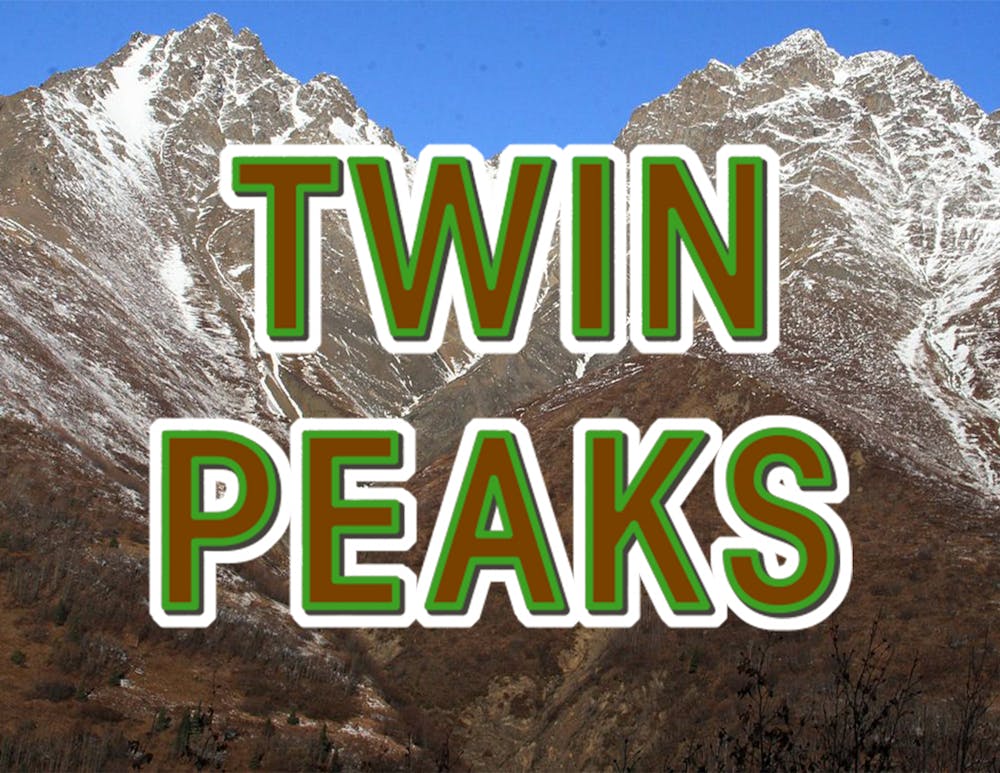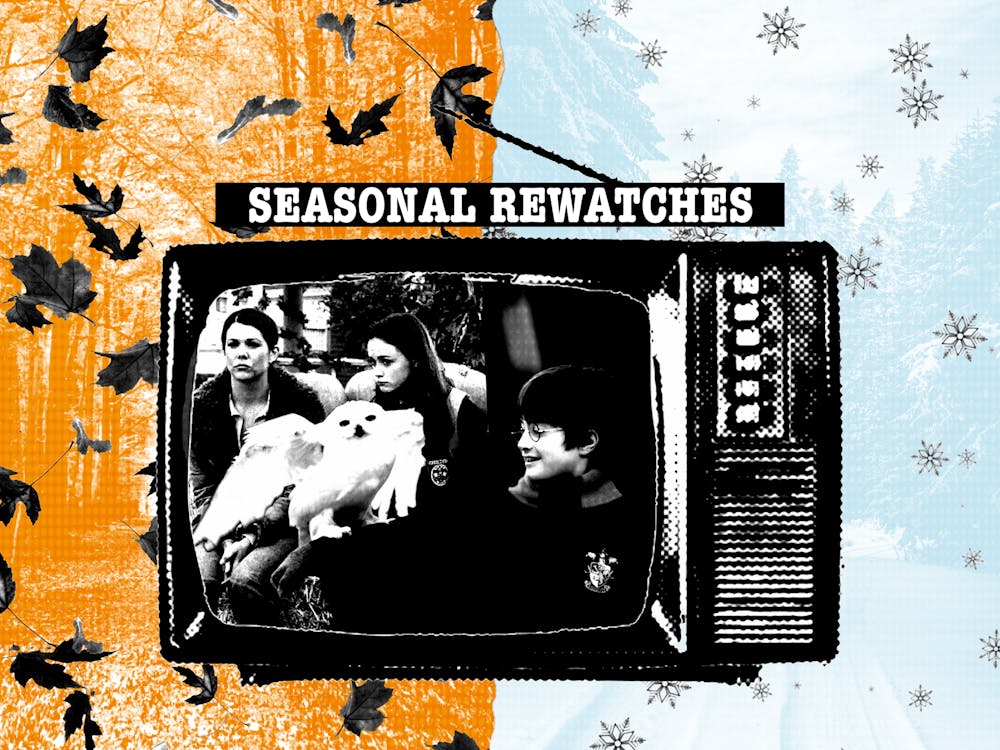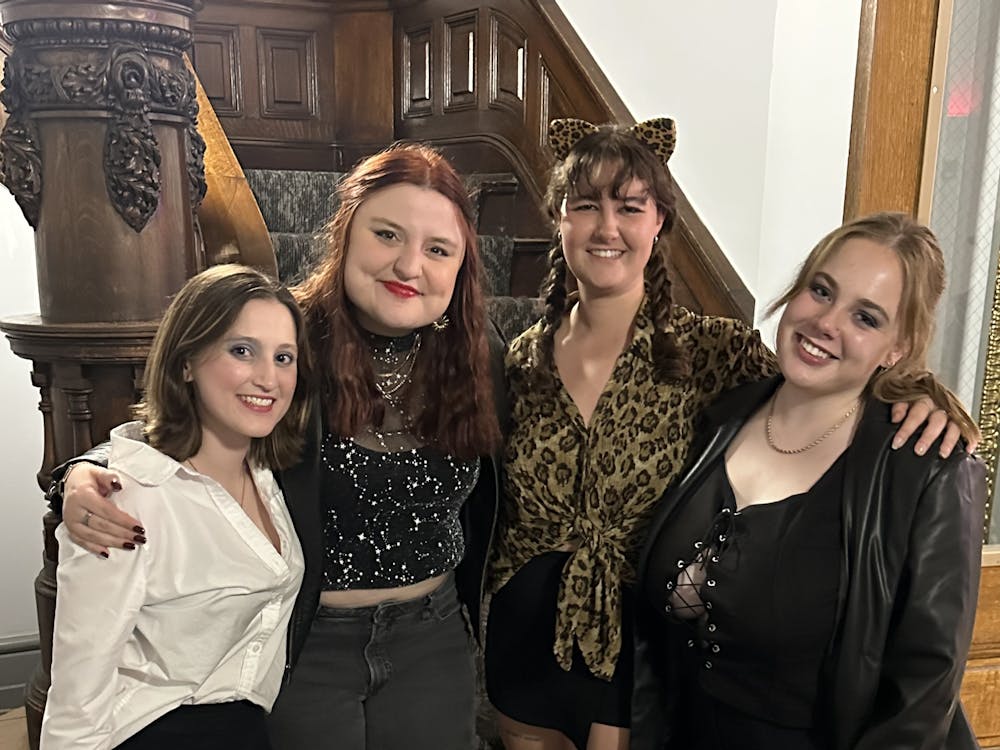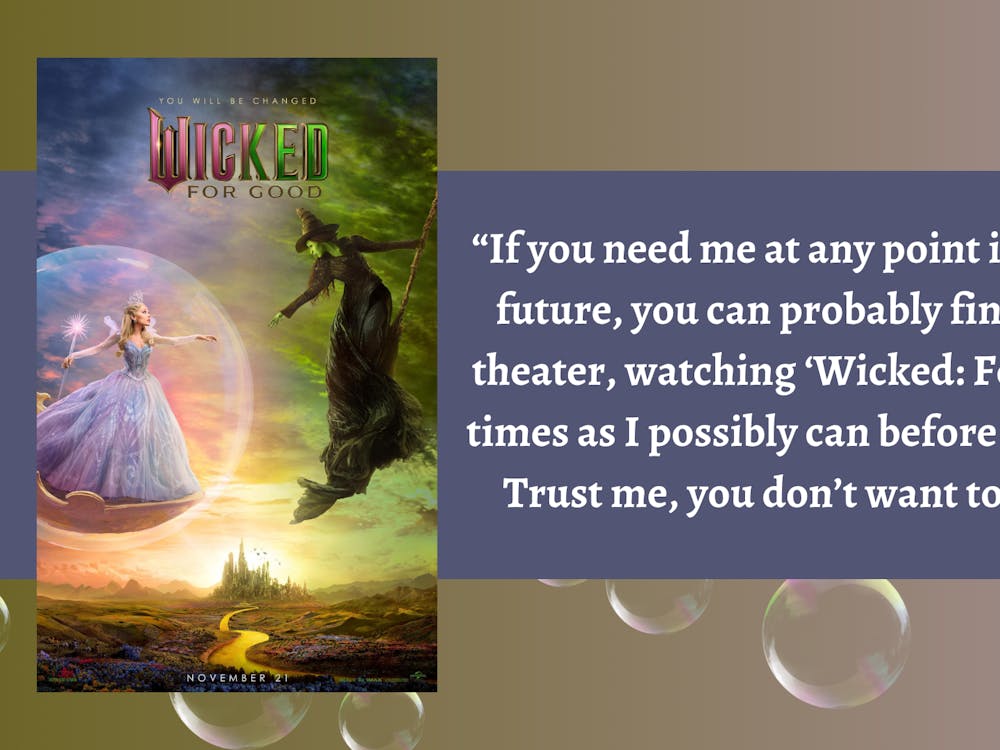It's the beginning of October, but it's been months since September. It's 5 p.m., but noon was two days ago. You watch the seconds tick past on your watch, but a minute feels so much longer than 60 of them. And nobody can come close to guessing how long ago the semester started. Time feels like both a thick molasses and an unending deluge — it is something we must both constantly endure and passively wait out.
The haunting drab and uncanny of today has never been better represented than it was in “Twin Peaks,” a compellingly bizarre murder mystery series from the ’90s centered around the strange death of a girl named Laura Palmer. Its stylings and general ideas ring true to the surreal and oppressive nature of the world today on multiple levels.
In David Lynch's almost 30-year-old masterpiece of a series, he turned a small, benign town into a sealed microcosm for the perpetual chaos and dread that has somehow become ever-present in modern life.
This is most prominent in the style of the series. The slow and deliberate camerawork combined with serene, yet washed-out shots of nature creates a still, almost unmoving atmosphere that is only disrupted by the characters within it.
Off-beat humor and deliberate juxtaposition of the serious and benign establishes the mood of any moment perfectly, with the series often willing to stop taking itself seriously, but never becoming a joke.
More than that, the mixing of these things helps to humanize situations and characters. Not a single person in the main cast feels single-purposed or one-dimensional. Instead, each person in the town evolves and grows, and every one of them can be understood to some extent.
The world that has been created around them seems strange, outlandish and at times, inexplicable; the most so is during dream sequences and paranormal encounters. They react in ways that seem logical and human.
The story evolves with them instead of dragging them along. The subtle, natural writing allows the thin line of disbelief to always be walked but almost never crossed.
The two main protagonists, FBI agent Dale Cooper and Sheriff Harry S. Truman, present two sides of a coin in their interactions. Cooper is a perplexed yet knowledgeable outsider, looking in on the strange goings-on of a small town, and Truman is an experienced native. The two complement each other perfectly and get along wonderfully, creating a compelling dynamic that, like many of the other characters, stands out in the strange town. And that's what really makes “Twin Peaks” distinguish itself from the conventional murder mysteryor really any conventionally cryptic or surreal media.
The characters.
As I watched it for the first time, I was enthralled by the amazing atmosphere that Lynch created. But more than that, I fell in love with the characters that inhabited all of it. All of them can be related to, and all of them feel rooted in the town they live in. They all feel human, from the way they walk to subtle details and fascinations.
As we meet Agent Cooper, we see him switching between two modes: He asks about Laura Palmer's death and then mentions the wonderful cherry pie he had on the way in. He goes to see the body but can't help but ask Truman what kind of magnificent trees he saw as he drove through town. Things are never more serious than they have to be, and while that can relieve tension in some moments, it can also do the opposite. When all pretense of humor is gone, the gravity of the situation hits like a truck.
Enjoy what you're reading?
Signup for our newsletter
Ultimately, “Twin Peaks” roots itself in the uncanny. The show's occurrences are almost supernatural, and a haze of the inexplicable is ever-present. Watching it, you can't help but feel as if Lynch had some grand insight into the deeply unsettling reality that we live in today.
Even though it is vastly different, it just feels too familiar. Despite all that, the series is ultimately comforting. As its cast of brilliantly written characters navigate the surreal hellscape they find themselves in, you can't help but feel reassured.
If they can make it through a world as strange as theirs, we all can make it through the one we find ourselves in right now.




